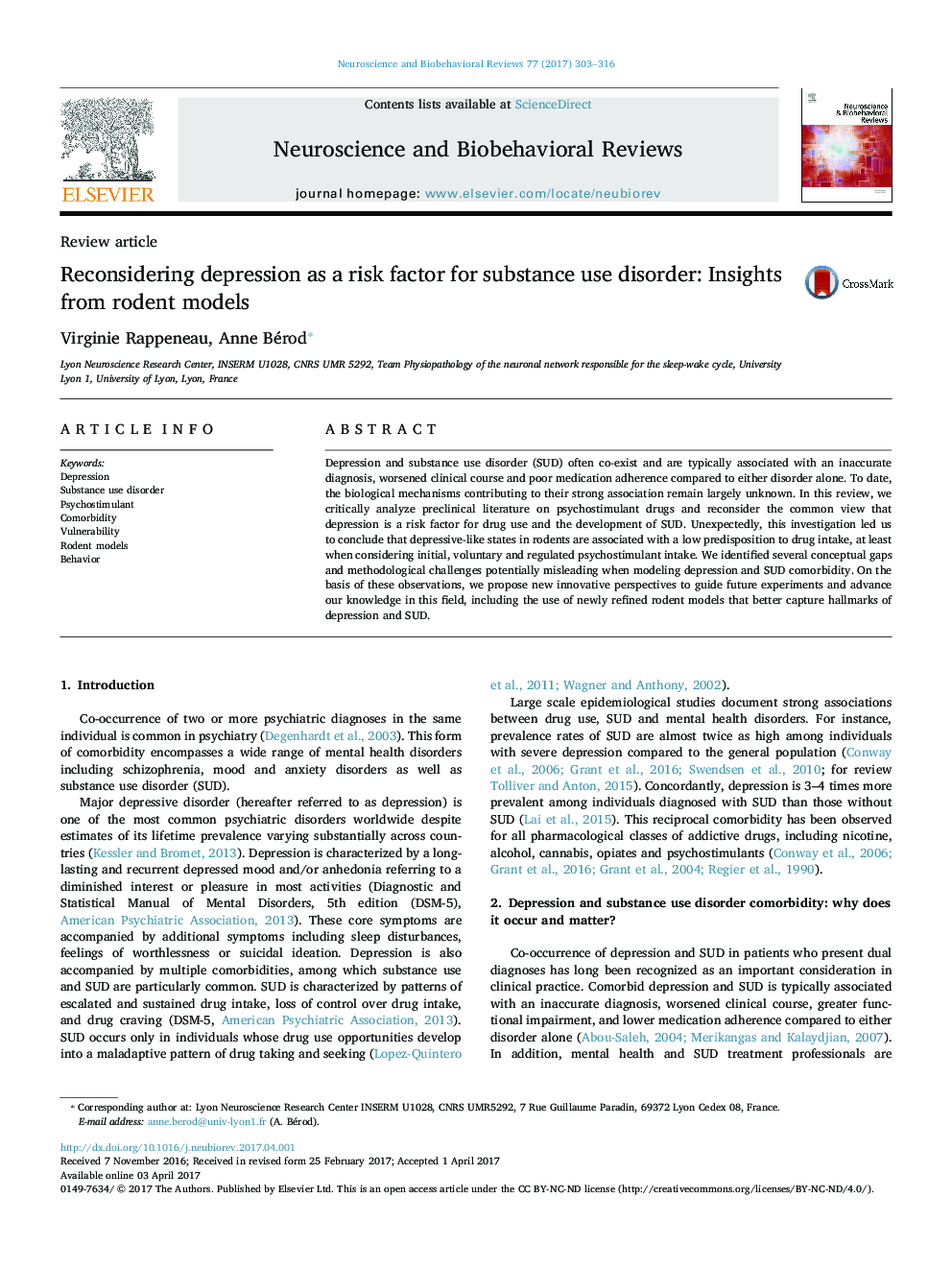| Article ID | Journal | Published Year | Pages | File Type |
|---|---|---|---|---|
| 5043571 | Neuroscience & Biobehavioral Reviews | 2017 | 14 Pages |
â¢Depression and substance use disorder (SUD) are highly comorbid.â¢The biological mechanisms contributing to their strong association remain largely unknown.â¢Depression is considered as a risk factor for drug use in clinical practice.â¢Critical analysis of studies in rodents does not support depression as a risk factor for drug use.â¢Emphasis on newly refined rodent models that mimic hallmarks of depression and SUD is recommended.
Depression and substance use disorder (SUD) often co-exist and are typically associated with an inaccurate diagnosis, worsened clinical course and poor medication adherence compared to either disorder alone. To date, the biological mechanisms contributing to their strong association remain largely unknown. In this review, we critically analyze preclinical literature on psychostimulant drugs and reconsider the common view that depression is a risk factor for drug use and the development of SUD. Unexpectedly, this investigation led us to conclude that depressive-like states in rodents are associated with a low predisposition to drug intake, at least when considering initial, voluntary and regulated psychostimulant intake. We identified several conceptual gaps and methodological challenges potentially misleading when modeling depression and SUD comorbidity. On the basis of these observations, we propose new innovative perspectives to guide future experiments and advance our knowledge in this field, including the use of newly refined rodent models that better capture hallmarks of depression and SUD.
